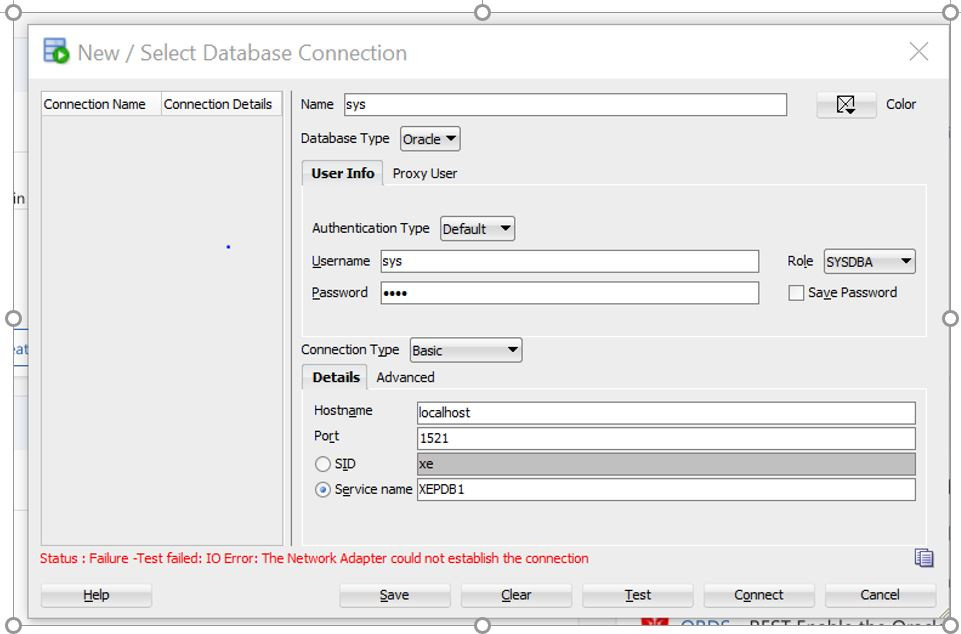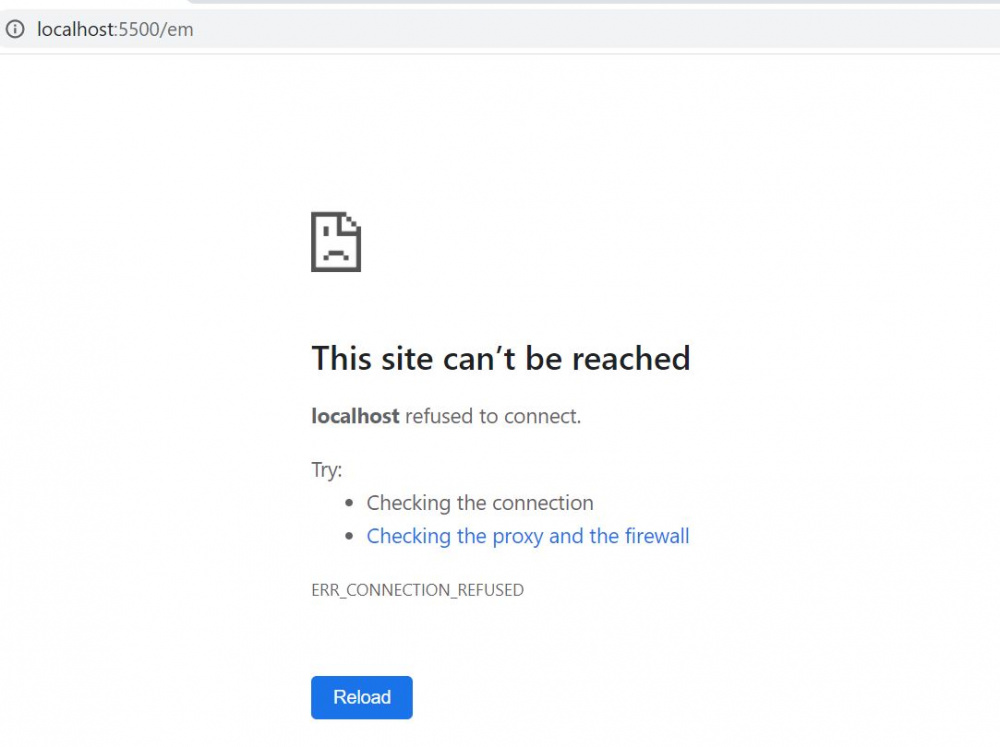I am learning SQL. I installed Oracle Database Express Edition (18c) in Dec 2020. Had no issue to access and run sql queries via Oracle SQL Developer 20.2.0 then.
By some reason now when i tried to run queries via Oracle SQL Developer, I got the following message.(screenshot 1) I tried to change Hostname to my ip address, I still got the same error.
I also noticed that I could not access https://localhost:5500/em site anymore via chrome (I was able to access in Dec 2020, had to enable the flash first), now I am getting an error page. - see screenshot 2
Are those two issues related? I know Adobe no longer supports Flash player since 12/31/20
Thanks for your assistance.

